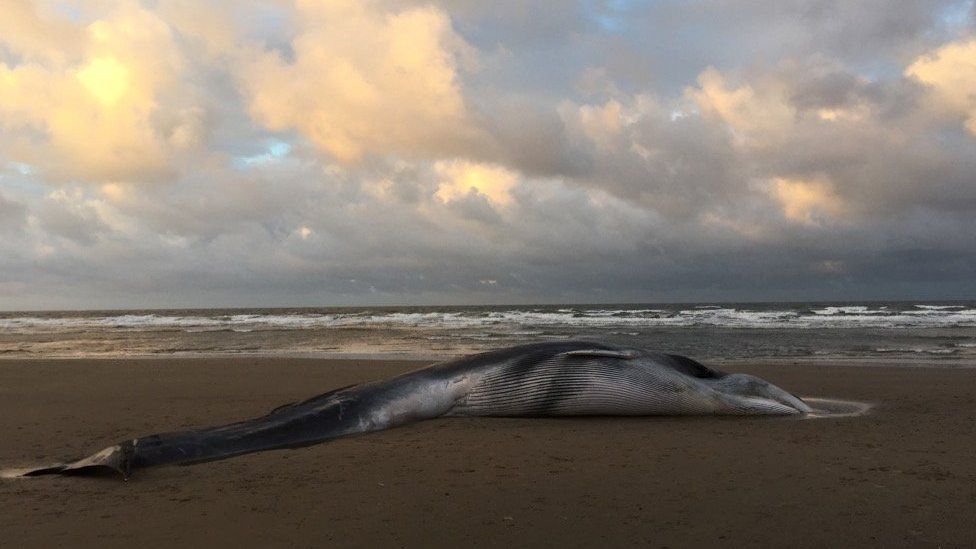Holkham beached whale starved to death
- Published

A fin whale measuring 42ft (13m) that washed up on a Norfolk beach died of starvation linked to a spinal abnormality, experts have said.
The juvenile female was discovered at the Holkham National Nature Reserve on the north Norfolk coast on Thursday.
The Cetacean Strandings Investigation Programme (CSIP) carried out a post-mortem examination on the beach to establish the cause of its death.
Plans are in place to remove the carcass, the Holkham Estate said.
"Evidence from the post-mortem examination indicates that the fin whale had developed a spinal abnormality, which had potentially limited the degree of movement and brought progressive wasting of muscles and death," Rob Deaville from the CSIP said.
"The degree of muscle-wasting appeared much more profound along the tail-stock, behind a 'hump', so we speculate that the spinal abnormality had limited the degree of movement in that region in particular, which would have impacted on the animal's ability to dive and feed.
"The spinal abnormality may have been congenital, but it is certainly possible that the whale may have survived an historical traumatic event."
Penny Clarke filmed the whale on the shore
Fin whales
- Listed as endangered by the International Union for Conservation of Nature (IUCN)
- Grow to about 26m (85ft) long and can live to about 90 years old
- They can weigh up to 74 tonnes and live on a diet of small fish, crustaceans and squid
Dr Ben Garrod, of Anglia Ruskin University, previously said that fin whales, the second largest group in the whale family, were more often seen in the deep ocean.
"Fin whales are rarely, if ever, seen in the North Sea and are instead found off the western British Isles."
- Published22 October 2016
- Published20 October 2016
- Published4 October 2016